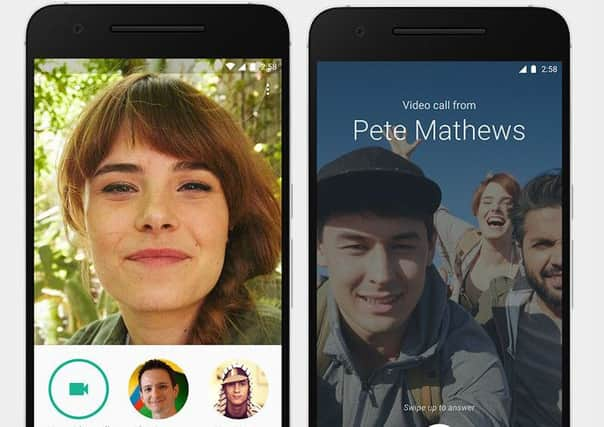Best new ways to make phone calls without using your included minutes


In the same way as services like WhatsApp, Telegram and Facebook Messenger reinvented the way we communicate by text, a new generation of app is taking over the telephone function of your smart handset.
Apps that use the internet, rather than your mobile network, to place calls are not new, of course. Skype has been around for years, as has Apple’s FaceTime. But while FaceTime is fine for calling other iPhones, Skype is a relic of the desktop computer age. You can use it on a phone but you won’t get the same streamlined experience.
Advertisement
Hide AdAdvertisement
Hide AdAll these services, unlike regular mobile calling, transmit pictures as well as audio, and can, depending on your tariff, work out vastly cheaper. The other week, I used Facebook to place a call to Thailand from a car park in Harrogate, and spoke for around half an hour, with decent, two-way video quality, at a cost of precisely nothing. Given that just a few years ago, calling anyone at all from a mobile was prohibitive and unreliable, that’s quite remarkable
Google’s entry into the video telephony market ups the stakes still further. Google Duo, available for Apple and Android phones only, is pitched as a simpler alternative to Skype and FaceTime, with a “knock knock” feature that lets you to see live video of the person calling you before you answer.
Duo lets you adjust how much mobile data - as opposed to wifi - you use, which is useful if you are on a capped tariff, and Google says it will work even on slower network speeds by reducing its resolution. Your calls are encrypted for privacy and, like FaceTime, you need only a phone number to connect.
As with all these services, you can’t talk to anyone who hasn’t downloaded the same app, so while they are ideal for people in your family circle, they are no use for casual calling. Facebook Messenger, with its huge base of users, is as close as internet telephony gets to universal reach, at least for the moment.
Advertisement
Hide AdAdvertisement
Hide AdUnlike Duo, Messenger can be used to make group calls, and you can connect from a laptop - or even a desktop PC with a webcam connected - as well as your phone.
Messenger is also worth trying if you’re still looking for an alternative to your phone’s standard SMS text service. Like its competitors, you can send pictures and other attachments with your texts, without incurring out-of-contract charges from your operator.
The latest SMS alternative is again from Google. Its late-to-the-party offering, Allo, lets you adjust the size of your text and invoke extra privacy when you need it. In a gimmicky text version of Apple’s Siri, you can also message requests to a “digital assistant”.
All of these services are free, including WhatsApp, which dropped its 69p annual subscription last year. But none liberates you completely from your airtime contract because in the absence of a wifi signal, they will eat into your data - though not your voice - allowance. It’s a balance worth keeping in mind next time you negotiate your tariff.